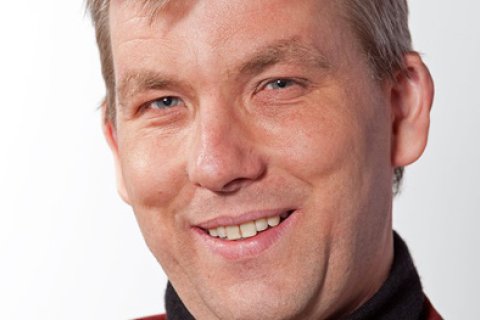Meet Prof Paul Ziche
5 questions to Prof. dr. Paul Ziche, member of the Open Science Platform.

Who is Paul Ziche?
Professor of the History of Modern Philosophy at the Department of Philosophy and Religion Studies; affiliated with the Descartes Centre for the History and Philosophy of the Sciences and the Humanities; studied Physics (without earning a degree), Philosophy and History of Science; special interest in marginal authors, words with interesting etymologies (like ‘science’), and the interaction between philosophy, the other sciences and cultural practices (such as art); as a Historian, I have a special passion for the 19th century.
How did you become involved with Open Science?
Good question! It feels like a natural extension of my work on topics such as the history of science and the philosophical reflection on science, and my administrative duties in all sorts of areas. At the Descartes Centre, I’ve been able to follow the developments from ‘Science in Transition’ to ‘Open Science’ first hand. So it’s great that I’ll be able to get even closer to the fire, so to speak.
How do you see the role of the Open Science Pllatform? Which developments have you noticed?
What makes the Open Science-enterprise so interesting is that it combines big conceptual issues with extremely concrete, practical problems and solutions. So how can we better analyse existing structures in the scientific field (such as which disciplines are considered to be the paradigms for ‘scientific’?), and how can we change them if necessary. But also: what kinds of questions should we add to an evaluation-form? I see that dynamic constantly recurring during the platform meetings, and one of the crucial functions of the Platform is to coordinate those various layers.
Where do you hope to see Humanities in the field of OS two years from now? What do you consider to be ‘data’ or ‘replicability’ at the Faculty of Humanities?
Those are fascinating questions to me, because they combine major substantive and conceptual questions about the nature of the various disciplines, methodological standards and evaluation criteria. I think it’s crucial for us to continue to think about the differences between the disciplines. Take publication culture, for example: for many fields in the humanities, monographs and bundles are very important, which has immediate implications for the attainability of open access goals. But the question also illuminates other aspects: in many contexts within the humanities, ‘replicability’ isn’t really a criterium. Even my closest colleagues, who read and interpret texts the same way I do, will arrive at different interpretations - and that’s a good thing. That of course doesn’t mean that everyone can just say anything, however. On the contrary: we should always debate and negotiate about the reading of texts, the meaning of certain historical or social problems, and the accurate description and analysis of cultural phenomena or ethical issues. Something similar applies to ‘data’: in many cases there isn’t a clear sequence for using data to arrive at interpretations or theories. which data you cite and how you organise and analyse them will depend on the questions you ask, and vice-versa. That doesn’t mean data has no role to play in the humanities - on the contrary: a thorough reflection on what data are and what they can mean is the core consideration of the humanities.
So where should we stand? The humanities are already doing well in certain areas, such as various career paths, dealing with SEP protocols, reflecting on evaluation criteria for evaluations, etc. But we’re not doing as well in others, such as Open Access. More attention for Recognition & Rewards will hopefully make a big difference soon. And if we fully utilise our expertise in reflecting on differences, such as those between sciences, disciplines, methods, etc., then we can arrive at important insights for Open Science that could also be interesting for immediate application in the humanities.
Which Open Science tips can you give? What are you most proud of yourself?
It’s still too early to show any Open Science results that I’m proud of. But I can share my motivation to think about the history of philosophy and why I think that form of thought - and many other forms of thought - are important: we have to learn to enjoy the fact that things (concepts, problems, practices) are more complex, more diverse, and less easy to understand than we’d initially thought or expected. The great philosopher W.V.O. Quine once confessed that he had an aesthetic preference for the simplicity of desert landscapes. But I disagree: we should try to make things more complex (and that means: more concrete), in a highly methodologically responsible manner.

